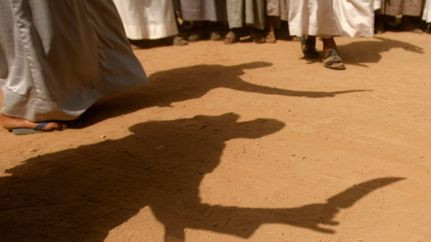Saudi Military Attaché Gunned Down During His Commute To Work In Yemen

Yemeni officials said the Saudi official who was gunned down in the capital Sanaa on Wednesday was an assistant military attaché working at the Saudi Embassy in the country that has become the base of operations for Al Qaeda in the Arabian Peninsula (AQAP).
"Gunmen opened fire at the Saudi diplomat's car in a neighborhood in southern Sanaa, killing him and his Yemeni bodyguard," an unidentified Yemeni security official told Reuters, who also said the gunmen were dressed in uniforms identifying them as security officers.
The attack involving an undisclosed number of assailants in a drive-by shooting is the latest in an increasingly unstable, impoverished country that has threatened the security of its wealthier, oil-rich northern neighbor. In addition to the presence of AQAP militants, some of whom are radical Saudi dissidents seeking to overthrow the pro-Western Saudi royal family, the country’s restless northern border and its Houthi Shiia insurgency is seen as a thorn in Saudi Arabia’s side.
The attack took place in Hada, the city’s diplomatic quarter. The gunmen opened fire on the attaché’s vehicle as he was being driven to work at the Saudi embassy, according to Al Jazeera.
The Saudi Foreign Affairs Ministry had yet to issue a statement. The attack comes as Gulf Cooperation Council (GCC) Defense Ministers are meeting in the Saudi capital Riyadh to discuss regional security. The security situation in impoverished Yemen, the only state in the Arabian Peninsula that is not a member of the GCC, will likely be discussed in light of this recent assassination of a Saudi diplomat.
Meanwhile, Saudi Deputy Consul Abdullah al-Khalidi remains a hostage in Yemen’s southern port city of Aden. The official was kidnapped March 28 by members of Al Qaeda demanding a ransom and the release of female prisoners.
A wave of deadly attacks in Saudi Arabia between 2003 and 2006 led to a massive nationwide crackdown that sent militants fleeing south to rugged and unstable Yemen, where militant jihadists welcomed them.
Saudi Arabia later played a role in a power-transfer deal that replaced President Ali Abdullah Saleh with President Abdrabuh Mansur Hadi. Saleh was nearly taken out in an RPG attack in June of last year. In January Saleh departed Saudi Arabia for New York City to seek medical treatment for an unreported condition.
But the security situation has only worsened under the new leadership. In October, unidentified militants assassinated a high-ranking Yemeni security official who was working for the U.S. State Department at its embassy in Sanaa. Earlier this year Yemeni soldiers had to be deployed to Abyan province in the south to re-take several towns that had been taken over by militants.
In 2009, Saudi Arabia participated in an offensive with Yemen’s army against Shiia insurgents in the north fighting their own battle against the state, separate from AQAP’s. In an unprecedented move, the Saudi Arabia army and air force attacked targets outside of its borders in what is claimed was a defensive move against “infiltrators” that had crossed into the kingdom from Yemen to attack towns inside the country.
The Yemeni army attacked from the south in an offense called Operation Scorched Earth. It displaced hundreds of thousands of locals, creating a refugee crisis. The final death toll is inconclusive, but both governments claimed hundreds of Houthi fighters were killed along with roughly 250 soldiers from both countries.
© Copyright IBTimes 2025. All rights reserved.






















